Inevitable Liquid-Cooled System
Liquid-cooled industrial chassis are becoming essential in modern industrial computing where high-density CPUs and GPUs generate extreme heat. Unlike traditional air-cooled industrial PC chassis, liquid cooling provides superior thermal efficiency, quieter operation, and better stability for 24/7 mission-critical workloads. This makes liquid-cooled IPC systems ideal for edge AI servers, machine-vision control units, robotics computing, industrial automation, and high-performance industrial servers deployed in harsh or confined environments.
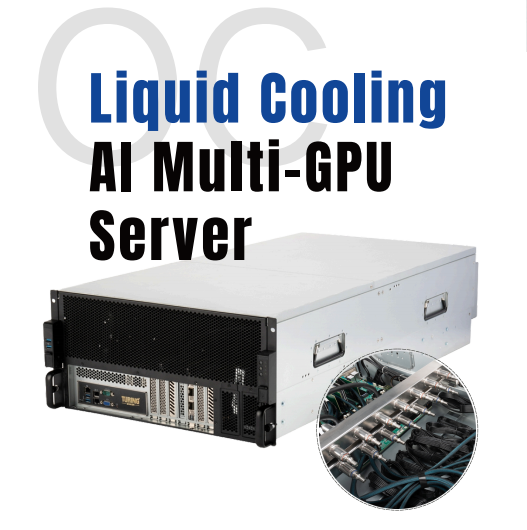
Application Scenarios for Liquid-Cooled Industrial Chassis
In the industrial computing space, liquid
cooling (or “water cooling”) for IPCs and server chassis is becoming
increasingly important:
- High-Performance AI/Compute at the Edge
Industrial AI servers that host multiple high-power GPUs or AI accelerators generate very high heat density. Liquid-cooled industrial chassis (e.g., with cold-plate cooling) can efficiently extract that heat, enabling stable 24/7 operation in edge data centers, smart factories, or robotics control rooms. This meets rising AI compute demand while maintaining reliability. - Data Center / High-Density Computing Frames
In data centers or industrial server farms, chassis-level liquid cooling (such as cold-plate or immersion cooling) can significantly reduce the thermal load on the rack, helping to lower Power Usage Effectiveness (PUE). For example, in high-density computing clusters, nearly all heat can be removed by liquid – one cold-plate system design achieves ~95% of heat captured via direct liquid contact, minimizing reliance on air cooling.
- Hot-Water Energy Reuse in HPC / Industrial Clusters
Projects like iDataCool have used liquid-cooled clusters with hot-water cooling, recovering waste heat to drive systems like adsorption chillers or for facility heating. In industrial contexts, such a design can allow reusing heat from compute units (e.g., in a smart factory) to power other thermal systems, improving energy efficiency.
- Industrial Power Electronics & Control Cabinets
Industrial control cabinets (e.g., for power converters, PLCs, inverters) often house high-power electronics. Liquid cooling can be combined with these cabinets to remove concentrated heat efficiently, reduce temperature fluctuations, and improve reliability — especially in environments with limited airflow. - Energy Storage Systems & Battery Management
Liquid cooling is also prominent in energy systems (though not exactly the “IPC-chassis” itself): for example, in large containerized energy storage, liquid systems can maintain tight temperature control (± 2 °C) across battery packs. While this is not exactly a computer chassis, the same industrial liquid cooling components (pumps, cold plates, manifolds) are shared in IPC cooling systems.
- AI / Data Center Pump Systems
As AI server power density increases (per-node power rising sharply), more data centers are choosing full liquid cooling loops. Liquid cooling pumps (e.g., industrial DCP-series) are being used to circulate coolant in compute racks or chassis. This supports high heat load systems in a stable, efficient way.
Advantages of Liquid Cooling vs. Air
Cooling
- Lower Noise: Because much of the
heat is carried away by a liquid loop rather than being pushed out by
high-speed fans, liquid-cooled systems can run much quieter — a
significant benefit in control rooms or edge computing environments.
- Better Thermal Efficiency: Liquid
has much higher heat capacity than air, meaning it can absorb and carry
away more heat per unit volume.
- Higher Power Density Support: As
compute modules (CPUs/GPUs) get more powerful and dense, air cooling
struggles. Liquid cooling (cold-plate, immersion, etc.) supports much
higher power density.
- Energy Reuse: Liquid cooling
enables more effective waste heat recovery (e.g., in hot-water cooling)
and can feed back into building heating, HVAC, or other systems.
- Improved Reliability: More stable thermal environment reduces thermal stress on components, potentially increasing longevity and reducing failure risk.
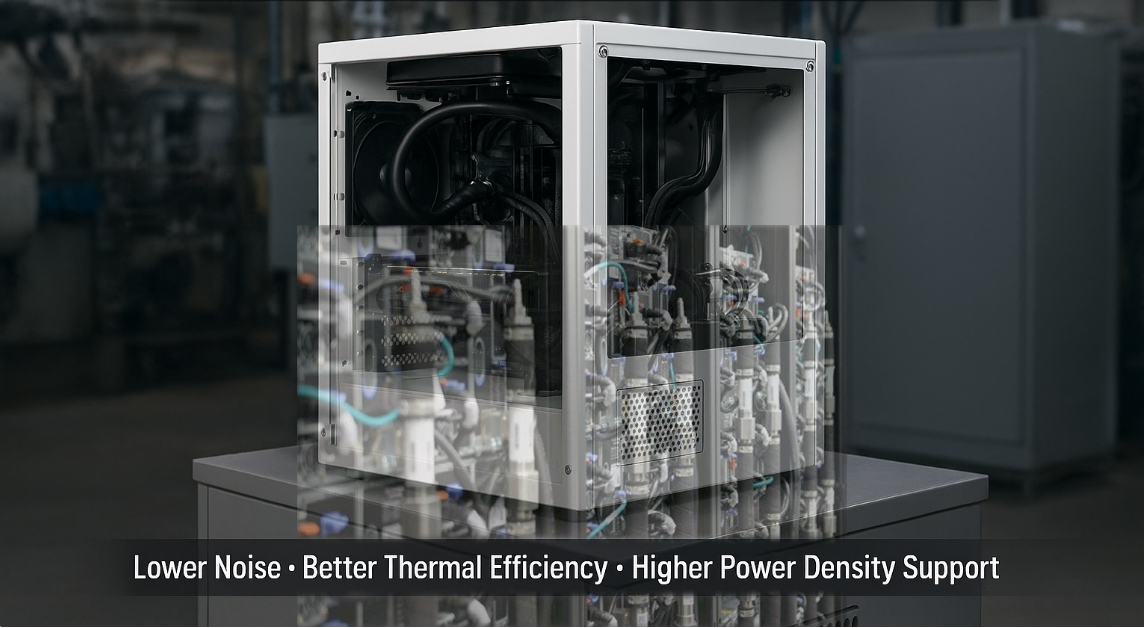 Inevitable Liquid-Cooled System
Inevitable Liquid-Cooled System
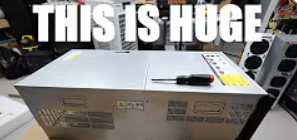 "INSANE 7U GPU Server! 8x RTX 5090 Build for AI & GPU Rentals"
"INSANE 7U GPU Server! 8x RTX 5090 Build for AI & GPU Rentals"
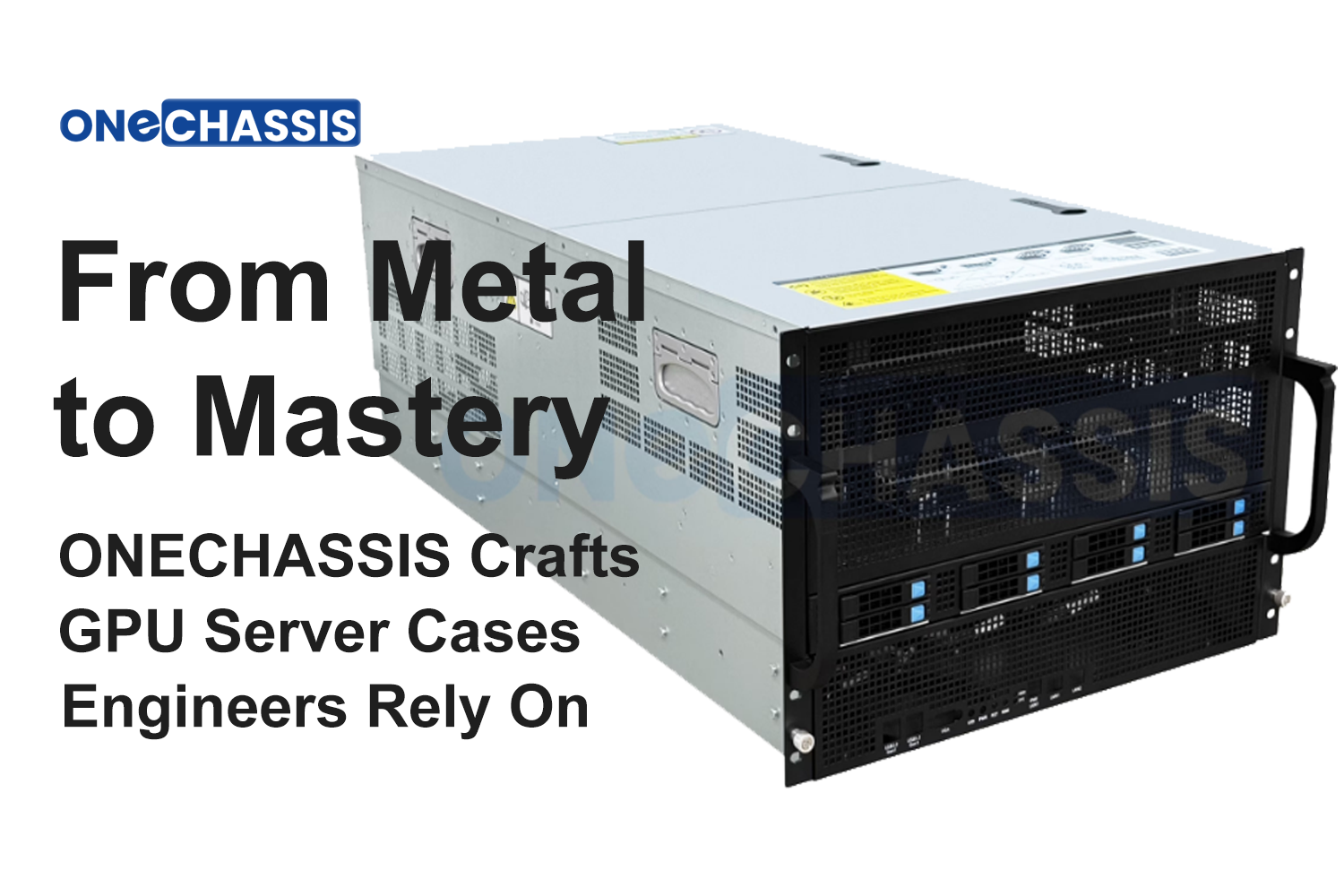 From Sheet Metal to Stability: How ONECHASSIS Crafts GPU Server Cases Engineers Rely On
From Sheet Metal to Stability: How ONECHASSIS Crafts GPU Server Cases Engineers Rely On
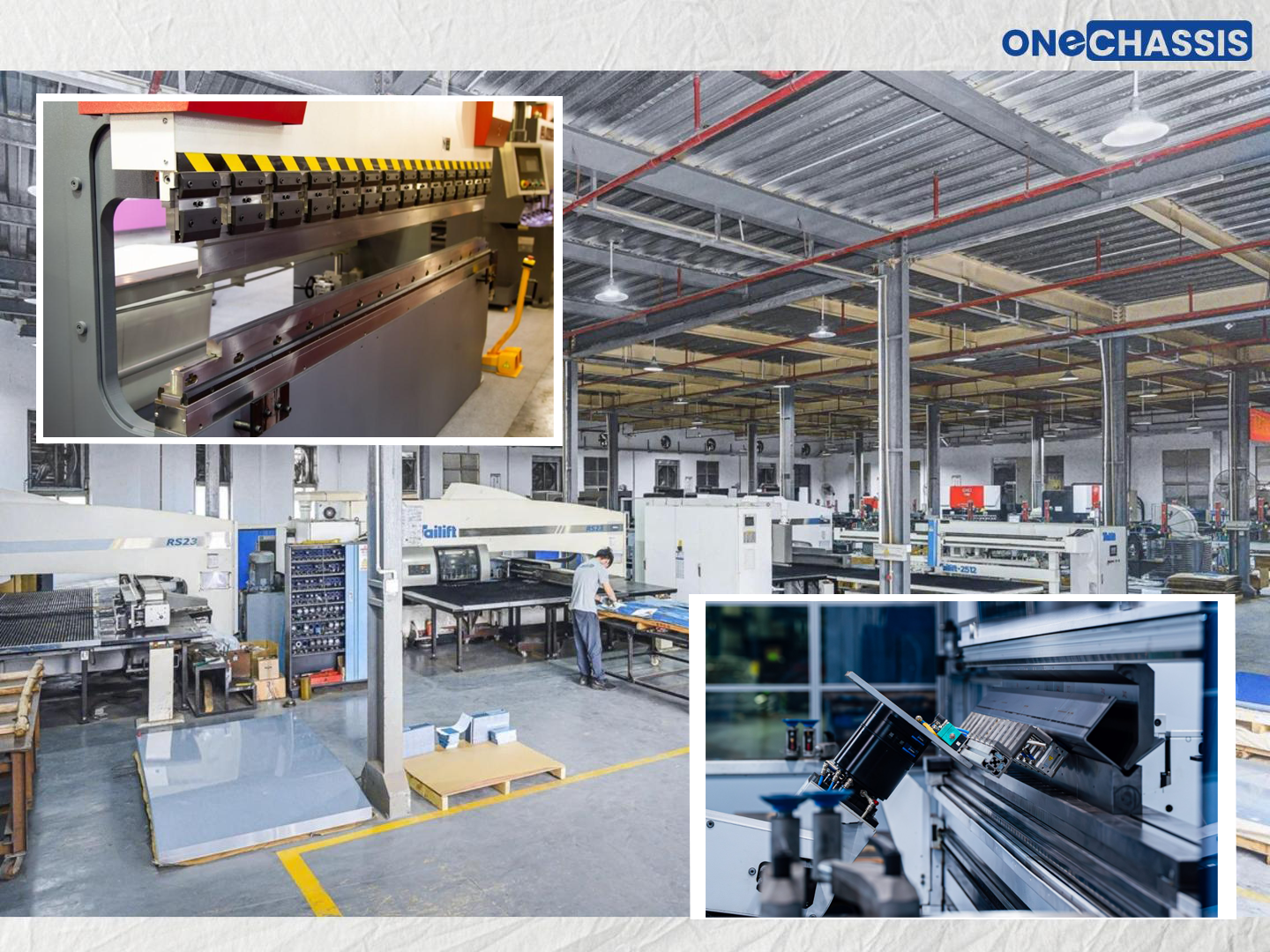 How We Build GPU Server Cases That Engineers Trust? (From Sheet Metal to Stability)
How We Build GPU Server Cases That Engineers Trust? (From Sheet Metal to Stability)

